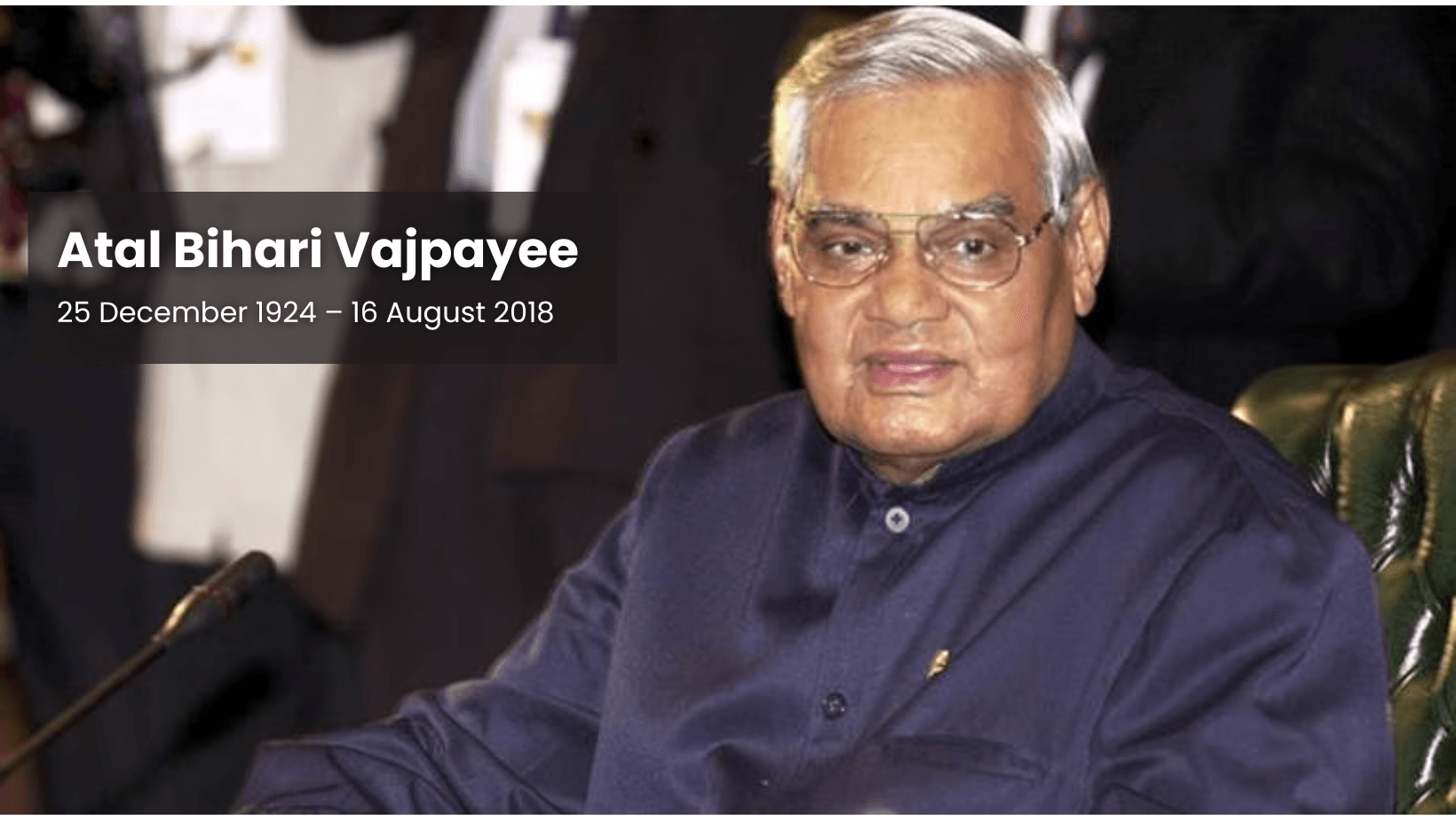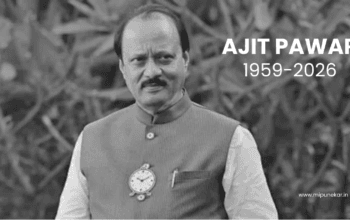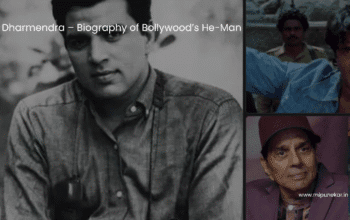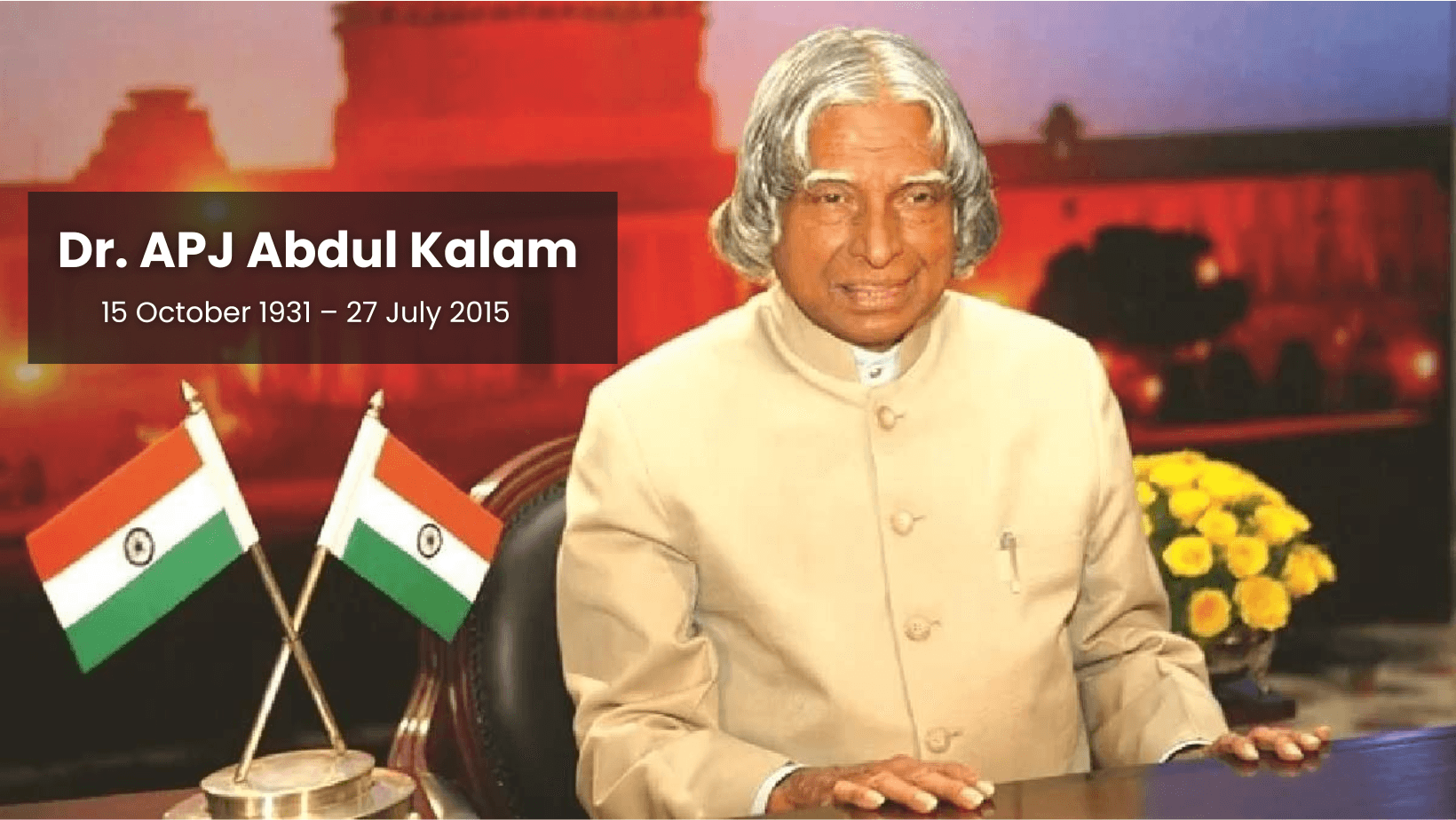Atal Bihari Vajpayee was one of India’s most iconic leaders, celebrated for his statesmanship, powerful oratory, and poetic soul. As a three-time Prime Minister and the face of Indian democracy during a transformative period, his leadership significantly influenced the country’s political and developmental landscape.
Early Life and Family Background
Atal Bihari Vajpayee was born on December 25, 1924, in Gwalior, Madhya Pradesh, to Krishna Devi and Krishna Bihari Vajpayee. His father was a school teacher and a poet, whose influence deeply shaped Atal’s personality and worldview. He grew up in a middle-class Brahmin family, valuing discipline, education, and cultural heritage.
From an early age, Vajpayee showed an exceptional aptitude for academics and literature. He pursued his schooling at Saraswati Shishu Mandir in Gwalior and later joined Victoria College (now Laxmibai College), where he completed his undergraduate studies in Hindi, English, and Sanskrit.
He went on to earn a Master’s degree in Political Science from DAV College in Kanpur, distinguishing himself as a scholar. Alongside his studies, Vajpayee developed a love for public speaking and writing, which later became instrumental in his political career.
Political Beginnings
Vajpayee’s political journey began in his youth when he joined the Rashtriya Swayamsevak Sangh (RSS) in 1939, inspired by its vision of cultural nationalism. As a dedicated RSS pracharak (worker), he traveled extensively, engaging with grassroots movements and understanding the country’s socio-political landscape.
In 1951, he became one of the founding members of the Bharatiya Jana Sangh (BJS), the political wing of the RSS. His eloquence, charisma, and strong commitment to national values soon gained him recognition. In 1957, Vajpayee contested and won his first election to the Lok Sabha from Balrampur in Uttar Pradesh.
His maiden speech in Parliament, full of wit and wisdom, left such an impression that even then-Prime Minister Jawaharlal Nehru predicted, “This young man will one day become the Prime Minister of India.”
Rise to Leadership
As a leader of the BJS and later the Bharatiya Janata Party (BJP), Vajpayee rose through the ranks, advocating for key issues such as economic self-reliance, national security, and cultural pride. He gained immense respect for his ability to bridge divides, earning admiration across party lines.
In 1980, after the dissolution of the Jana Sangh, Vajpayee became one of the founders of the BJP. He served as its first President and worked tirelessly to expand its base. Under his leadership, the BJP emerged as a formidable force in Indian politics.
Tenure as Prime Minister
Vajpayee served as India’s Prime Minister three times, marking a significant era in the nation’s history:
- 1996 (13 Days): Vajpayee was sworn in as Prime Minister but resigned after 13 days due to a lack of majority in Parliament.
- 1998–1999 (13 Months): His second tenure saw bold initiatives like the Pokhran-II nuclear tests, which cemented India’s position as a global nuclear power. Despite international sanctions, Vajpayee’s leadership ensured economic stability and strategic progress.
- 1999–2004 (Full Term): Vajpayee led India into the new millennium with a focus on economic reforms, infrastructure development, and foreign diplomacy. Key achievements included the Golden Quadrilateral highway project, the Sarva Shiksha Abhiyan for universal education, and the revival of India’s IT sector.
Vajpayee’s approach to governance was marked by pragmatism, inclusivity, and a deep sense of responsibility. He played a crucial role during the Kargil War in 1999, standing firm against aggression while seeking lasting peace through dialogue with Pakistan. His efforts culminated in the Lahore Declaration, a historic step toward improved bilateral relations.
Love Life and Personal Relationships
Atal Bihari Vajpayee chose to remain a bachelor, often saying he was “married to the nation.” However, he shared a deep and enduring bond with Rajkumari Kaul, a family friend and intellectual companion. Their relationship was built on mutual respect, shared interests in literature and philosophy, and an understanding of each other’s values.
While Vajpayee kept his personal life private, the Kaul family was an integral part of his household. He treated Rajkumari Kaul’s daughters as his own, exemplifying his inclusive and affectionate nature.
A Poet and Thinker
Beyond politics, Vajpayee was a celebrated poet whose works captured his reflections on life, humanity, and the nation. His anthology, “Meri Ekavan Kavitayein”, is revered for its depth and simplicity. His poetry often combined themes of patriotism, philosophical introspection, and hope for a brighter future.
As an orator, Vajpayee had an unmatched ability to connect with people. Whether addressing Parliament or a public rally, his speeches were characterized by wit, emotion, and a rare ability to inspire.
Awards and Recognition
Atal Bihari Vajpayee received numerous awards and honors, including:
- Bharat Ratna (2015): India’s highest civilian award.
- Padma Vibhushan (1992): For his exceptional service to the nation.
- Best Parliamentarian Award (1994).
He was also posthumously recognized as a leader whose legacy continues to inspire generations.
Later Years and Passing
After retiring from active politics in 2005, Vajpayee spent his final years in quiet reflection, battling age-related health issues. He passed away on August 16, 2018, at the age of 93. His demise marked the end of an era, and tributes poured in from across the globe, highlighting his contributions to India’s progress and his ability to lead with humility and vision.
Atal Bihari Vajpayee’s life remains an inspiration for millions. He was a leader who bridged divides, a poet who captured the soul of India, and a statesman who envisioned a strong, inclusive, and progressive nation. His legacy continues to resonate, reminding us of the power of integrity, perseverance, and humanity in public life.








